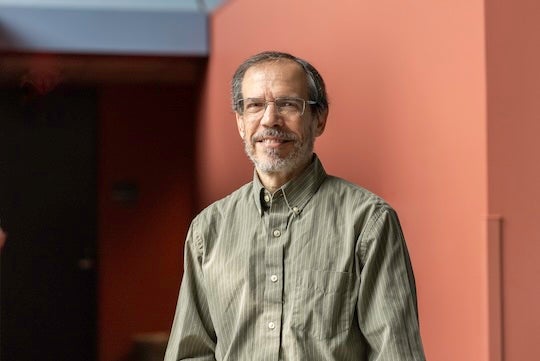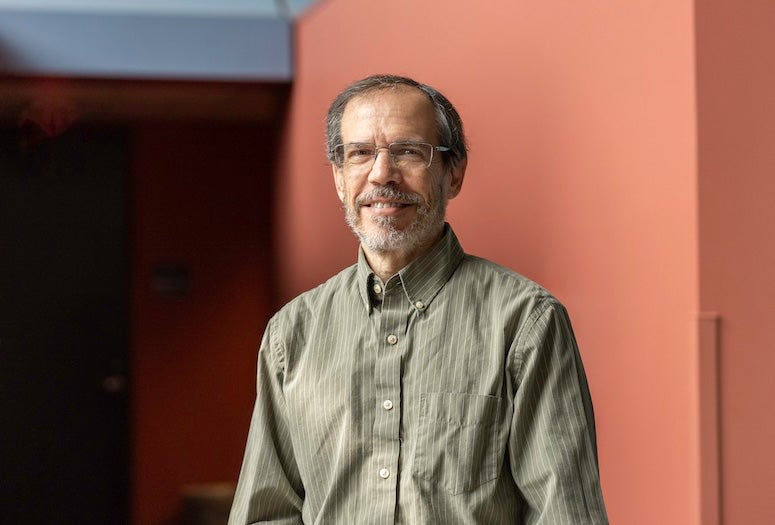Rice University and collaborators at The Texas Heart Institute, the Georgia Institute of Technology and North Carolina State University have received two grants from the United States Department of Defense and the National Institutes of Health to develop and optimize left ventricular assist devices (LVADs) — circulatory support pumps implanted as an alternative to heart transplantation for patients with end-stage heart failure.

“These are two really exciting projects that will help people with severe heart disease,” said Joseph Cavallaro, a Rice professor of electrical and computer engineering and computer science who is a co-investigator on the two grants. “Our multidisciplinary teams are addressing many of the key electrical and mechanical challenges limiting the use of LVADs today.”
Heart failure affects nearly seven million people in the U.S. and claims about 400,000 lives annually. For patients with advanced heart failure, LVADs are increasingly used as a destination therapy — i.e., a way to provide permanent mechanical cardiac support. Therefore, there is a significant need to reduce complications associated with the devices such as infection, stroke and bleeding.
The goal of the two research projects is to develop engineering solutions to reduce the complications related to blood clotting and tissue damage and driveline complications such as infection and mobility limitations.
Cavallaro, an expert in very large-scale integration systems design, signal processing, wireless communication and computer engineering systems, said, “The research projects are critical for the development of next-generation LVADs with the potential to serve as a long-term destination therapy to help people with advanced heart disease that may not be candidates for the limited number of heart transplants possible.”
For the project funded by the DOD, Cavallaro and his group will develop an external power source — a wearable, rechargeable battery — and a transmitter to wirelessly power the implanted pump. The system also will include a communication link for the centrifugal pump to provide feedback to the external power system.
“Our plans to use wireless energy transfer to power the LVAD promise to reduce the current infection risk of a control and power cable through the skin,” Cavallaro said. “Wireless energy transfer will allow for greater freedom of movement and improved quality of life.”
For a more in-depth description of the DOD-funded project, see The Texas Heart Institute announcement.
For the NIH-funded project, Cavallaro and his team will develop a “smart” magnetically levitated drive system that can sense the body’s physiological changes and automatically adjust the pump speed to meet the patient’s daily output requirement such as for exercising and sleeping.
“Machine learning algorithms will better adapt LVAD performance to follow the changing activity of the patient,” Cavallaro said.
An announcement detailing the NIH-funded project can be found on The Texas Heart Institute website.
The investigators on the two grants are Lakshmi P. Dasi, the Rozelle Vanda Wesley Professor in the Wallace H. Coulter Department of Biomedical Engineering and director of the Cardiovascular Fluid Mechanics Laboratory at Georgia Tech; Arun Kumar Kota, associate professor in the Department of Mechanical and Aerospace Engineering at N.C. State; O.H. Frazier, MD, director of the Center for Preclinical Surgical & Interventional Research at The Texas Heart Institute; and Yaxin Wang, director of the Innovative Device & Engineering Applications Lab at The Texas Heart Institute.
Mehdi Razavi, MD, is a clinical electrophysiologist and director of the Electrophysiology Clinical Research & Innovations department at The Texas Heart Institute, an adjunct associate professor of bioengineering and electrical and computer engineering at Rice and a co-investigator on the DOD grant.
- Awards information:
-
Department of Defense - Award Number HT94252310663
The work was supported by the assistant secretary of defense for health affairs and endorsed by the Department of Defense in the amount of $7,836,599 through the Department of Defense Defense Health Program, Congressionally Directed Medical Research Programs, Peer Reviewed Medical Research Program, Focused Program Award. Opinions, interpretations, conclusions and recommendations are those of the author and are not necessarily endorsed by the assistant secretary of defense for health affairs or the Department of Defense.National Institutes of Health - Award Number R01HL166724
The research described above is supported by the National Heart, Lung and Blood Institute of the National Institutes of Health. The content is solely the responsibility of the authors and does not necessarily represent the official views of the National Institutes of Health. - Image downloads:
-
https://news-network.rice.edu/news/files/2024/03/240308_Prof.-Cavallaro_Gustavo-108108-3724b50c135d1e97.jpg
CAPTION: Joseph Cavallaro is professor of electrical and computer engineering and computer science at Rice University. (Photo by Gustavo Raskosky/Rice University)
- Links:
-
Vertically Integrated Projects: https://eceweb.rice.edu/research/vertically-integrated-projects
Rice Wireless: https://wireless.rice.edu/
George R. Brown School of Engineering: https://engineering.rice.edu/
Department of Electrical and Computer Engineering: https://eceweb.rice.edu/Department of Computer Science: https://csweb.rice.edu/
Department of Bioengineering: https://bioengineering.rice.edu/

